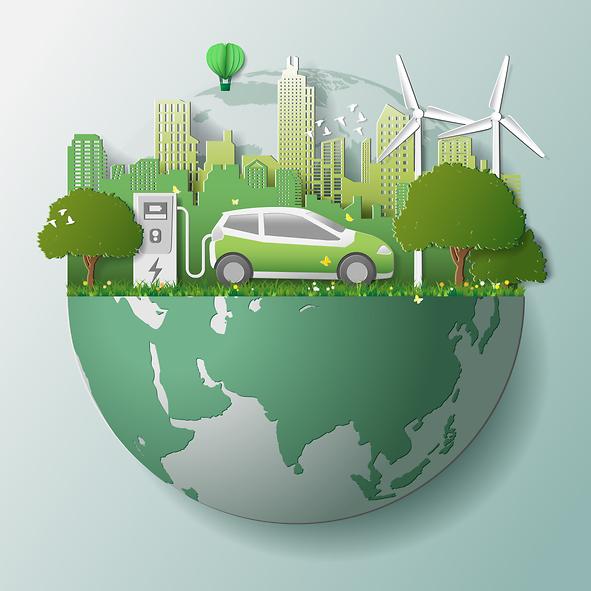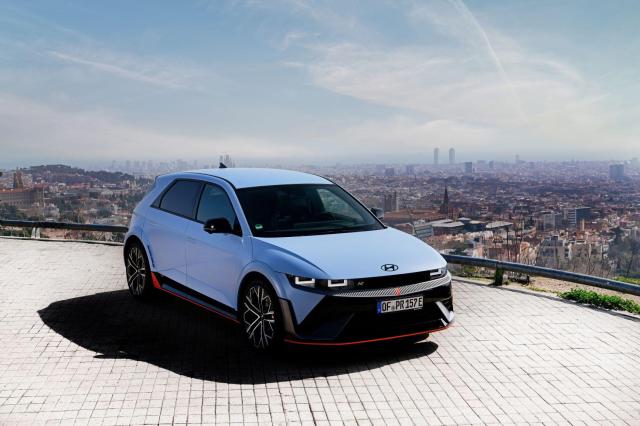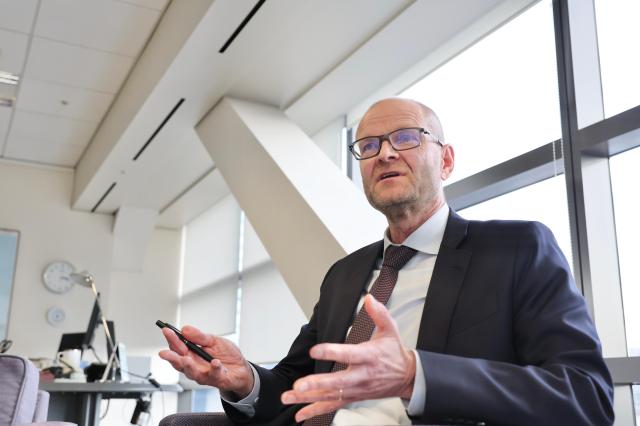
[Gettyimages Bank]
SEOUL -- South Korea eased regulations to expedite the recycling of discarded electric vehicle batteries as it undergoes a major change to gradually reduce the registration of internal combustion engine vehicles and promote the adoption of clean energy vehicles. The Seoul government has revealed a roadmap to increase the number of electric vehicles to 433,000 by 2021.
State data showed that the number of discarded EV batteries is expected to reach about 80,000 in 2029. Currently, all EV owners who received government subsidies upon their purchase must return car batteries to local governments when their cars are scrapped. However, there are no guidelines on how to use discarded batteries that still have up to 80 percent capacity.
The Ministry of Trade, Industry and Energy said in a statement on October 19 that nine companies including Hyundai Glovis, the logistics wing of Hyundai's auto group, LG Chem, a petrochemical and battery-making wing of LG Group, Hyundai Motor, the country's top carmaker, and GoodByeCar, a domestic car scrapping service operator, to start recycling businesses using discarded EV batteries.
"Discarded EV batteries could bring negative effect to the environment but new business models could be created when they are reused," the ministry said, adding the companies involved would share data after a two-year test period. The project using discarded EV batteries is designed to check the potential of future green energy businesses. The ministry said energy storage systems (ESSs) can be deployed in urban areas to provide fast-charging for EVs.
ESSs collect electricity from power generating facilities such as solar power generators and wind generators. Normally, battery-packed facilities are used to provide electricity to nearby areas as well as to sell stored electricity to state power companies. Because ESSs are about the size of a freight container box, they can be set up in any place including urban areas.
Hyundai Glovis will partner with KST Mobility, a taxi service company, to start a battery rental service for electric taxis. Seoul has revealed its plan to adopt 40,000 electric taxis by 2025. When taxi batteries are discarded, LG Chem will collect used batteries to build ESSs. Hyundai Motor will demonstrate the reproduction of batteries for ESSs connected to solar power generators. Discarded EV batteries will be broken down to reproduce batteries with larger capacities that are ideal for ESSs.
South Korea is encouraging people to build solar power generators on the roof of buildings or idle spaces to reduce greenhouse gas emissions. There are more than 53,000 solar power generating facilities as of 2019. The total output of solar power generating facilities is 11,391 gigawatt per hour, which is enough to power 4.3 million households.
GoodByeCar will produce portable battery packs, also known as power banks, using discarded EV batteries. The demand for portable battery systems is high in South Korea thanks to the increasing popularity of camping and outdoor activities. Power banks provide electricity to portable refrigerators, lights, heaters and other smart devices in outdoor environments. Currently, lithium iron phosphate power banks are widely used.
Copyright ⓒ Aju Press All rights reserved.





View more comments